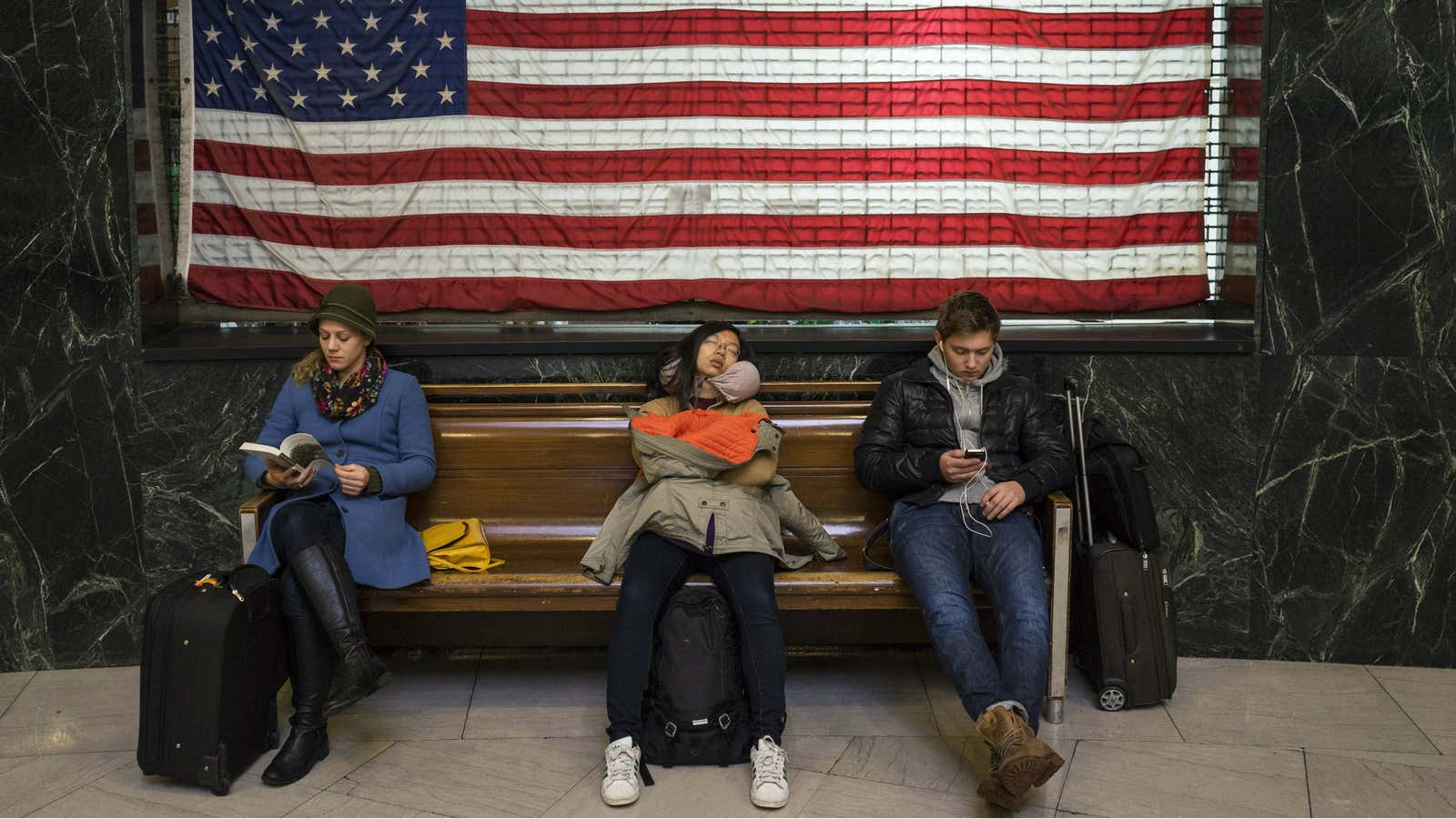From toning down my hand gestures to losing my personal bubble to re-evaluating exactly what a bathroom is supposed to look like, the following are just some of the habits I’ve learned to get rid of as an American traveling abroad.
1. Calling myself an American
From Canada all the way down to the tip of Argentina and Chile, residents of North America, Central America, and South America are all Americans. If you want to get into a heated debate and make an enemy in less than a minute, tell anyone in Latin America that you’re more American than they are. You’ll land yourself in a political discussion about hierarchies of money and power that will make you want to apologize for your very existence. Nowadays, I just say that I’m from the US.
2. Believing that I have to sit down, alone in the stall, to go to the bathroom
Before I left the United States, the term “popping a squat” wasn’t even in my vocabulary. I couldn’t imagine not having a porcelain seat, elevated properly off the floor, to do my business—and do it alone, at that. But when you find yourself with nowhere else to go but next to a one-foot-tall bush in the expanse of the Andean desert, with all of your tour buddies waiting in the bus, you use those weak quad muscles and let it all go. You get used to bidets, hoses, spaced slats of wood, communal bathrooms with no dividers, and flushing your waste with dirty bucket water. You plant your feet carefully on either side of the eastern toilet (a ceramic hole), grasping a rail while the train sways back and forth, and hope not to splash yourself.
3. Liberally using hand gestures
When you don’t speak the language in another country, your first resort might be to use hand gestures. Make sure to do your research beforehand. While giving the middle finger is a universally understood American signal, others are not. The A-OK sign, with the index finger forming a circle with the thumb, is equivalent to “asshole” in Brazil. If you point at a picture of the king in Thailand, you could land yourself in jail. Sometimes, it’s better to keep your hand movements to yourself.
4. Clinging to forks and spoons
Over the years, I’ve come to observe how other people eat and follow suit, using chop sticks, tortillas, bread, or simply my hands to eat. There’s no one right way to do anything, and there’s also no better place to acquaint yourself with a new culture than around the dinner table.
5. Having a personal bubble
In the US, when it comes to personal space, most of us grow up feeling entitled to an area around our bodies that we feel is ours. It depends on the person, but I think it’s safe to say that we require at least five to 10 inches around us, free from other people or objects, to feel comfortable. After traveling a bit, you quickly realize that the personal bubble is not a universal concept. Whether it be the mandatory cheek kiss in Europe, waiting in line in Asia with people pressed up on all sides, or sleeping in a dorm room with 11 other people, the illusion that you own any of the air surrounding you evaporates like the cigarette smoke just blown in your face.
6. Over-planning everything
If you grew up in the States, most of your friends had their whole lives planned out by the time they entered high school. They’d graduate college at 22, obtain their dream career in a year, get married at 25, have kids at 26, and so on. If there’s one thing I roll my eyes at, it’s thinking that you can strategically plot your entire life’s trajectory. When you travel, it’s a must that you embrace uncertainty. When you’re on the road, you come to understand that the unthinkable—whether good or bad—could happen at any time. Because of this, you learn to let go, live in the moment, and let life guide you to where you’re supposed to be.
7. Thinking that luxuries are necessities
When you’re wrapped up in the perspective of your own world, it’s easy to think that you “need” a better car, a new wardrobe, or a drink at the end of a hard day. After you start to travel—especially throughout developing countries—you begin to see how others live, forcing an immediate re-evaluation of what a necessity is. When you see children digging through garbage to find their next meal, families of 10 sharing a one-room shack, people without access to clean water, electricity or education, you just might feel ashamed that you once thought you needed a $350 haircut with highlights.
8. Equating money to happiness
The culture in the United States is undoubtedly capitalistic. We are taught that if we work hard enough, we’ll eventually have enough money to buy the car, house, and life of our dreams. We’ll be able to dress like celebrities and vacation on yachts with champagne fountains overflowing. At that point, once we’re millionaires, we can finally smile with our bleached teeth and know that we’ve obtained success. After over a decade of travel, I’m more than ever convinced that happiness has nothing to do with money. You can live in a mansion, using cash for Kleenex, and still wake up lonely and desolate. Or you can dance in rags alongside your family, knowing you’ll eat nothing but rice and beans for the next week, yet grateful for the love surrounding you. Travel has taught me that there are a multitude of ways to live, and many more ways to find happiness.
